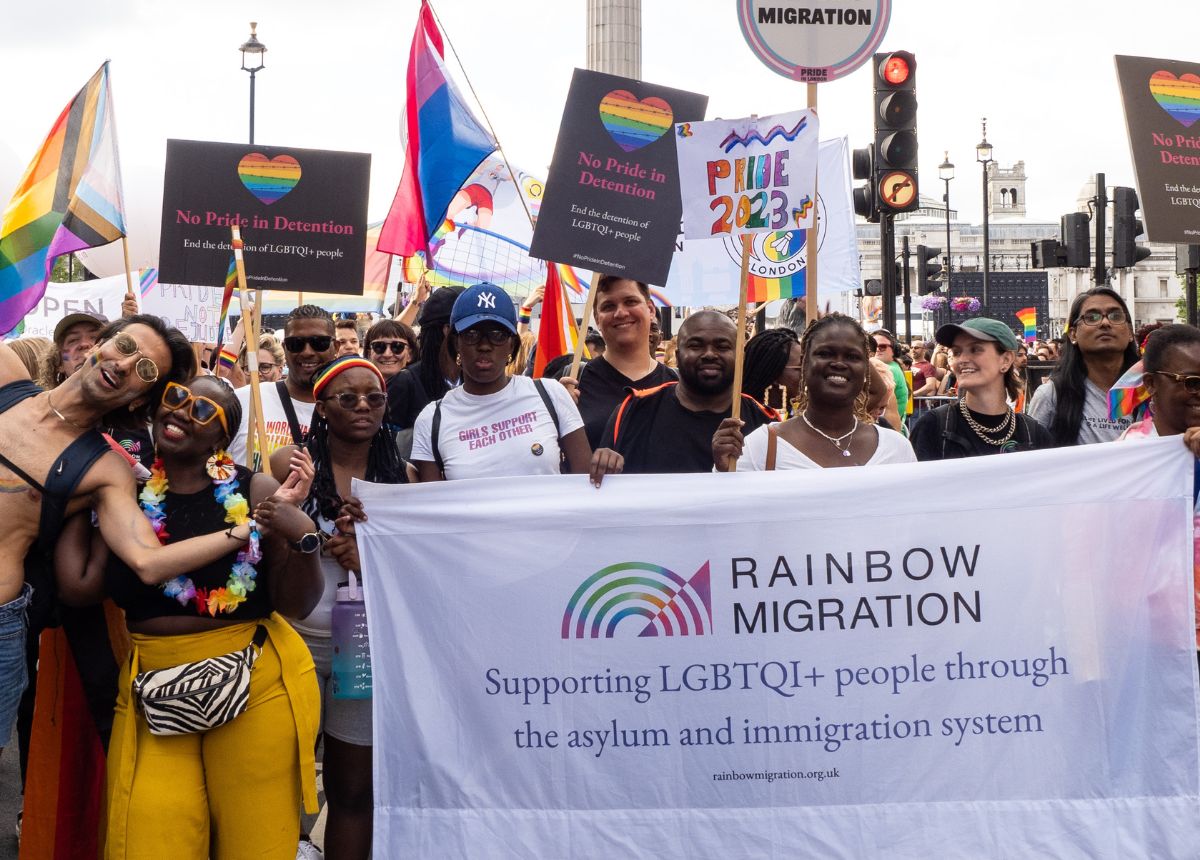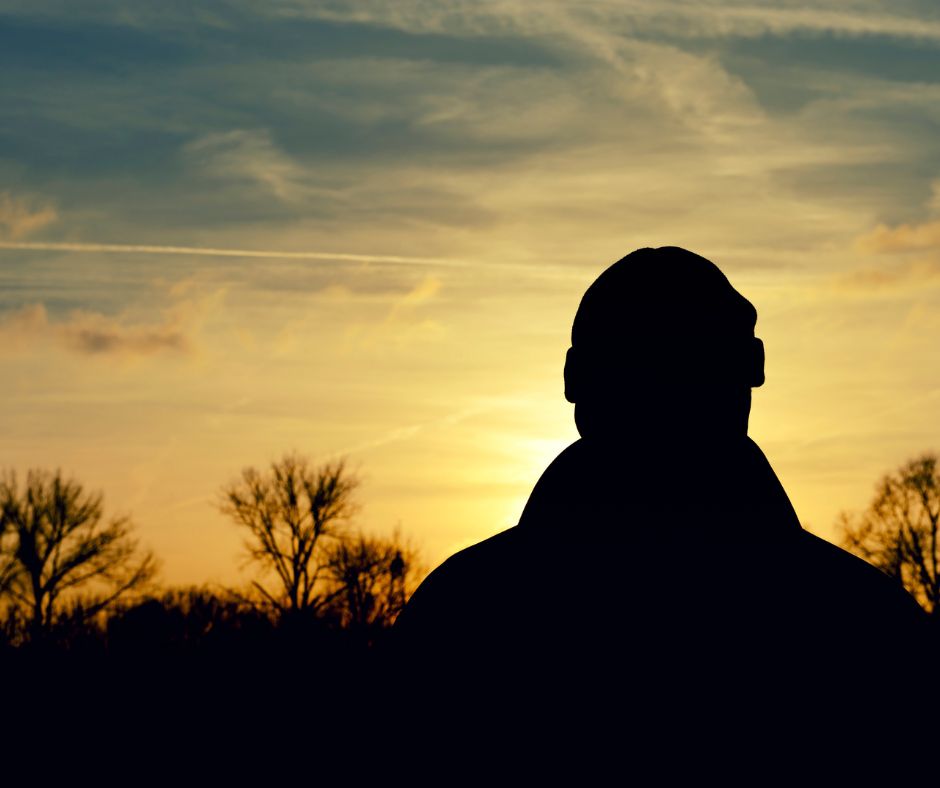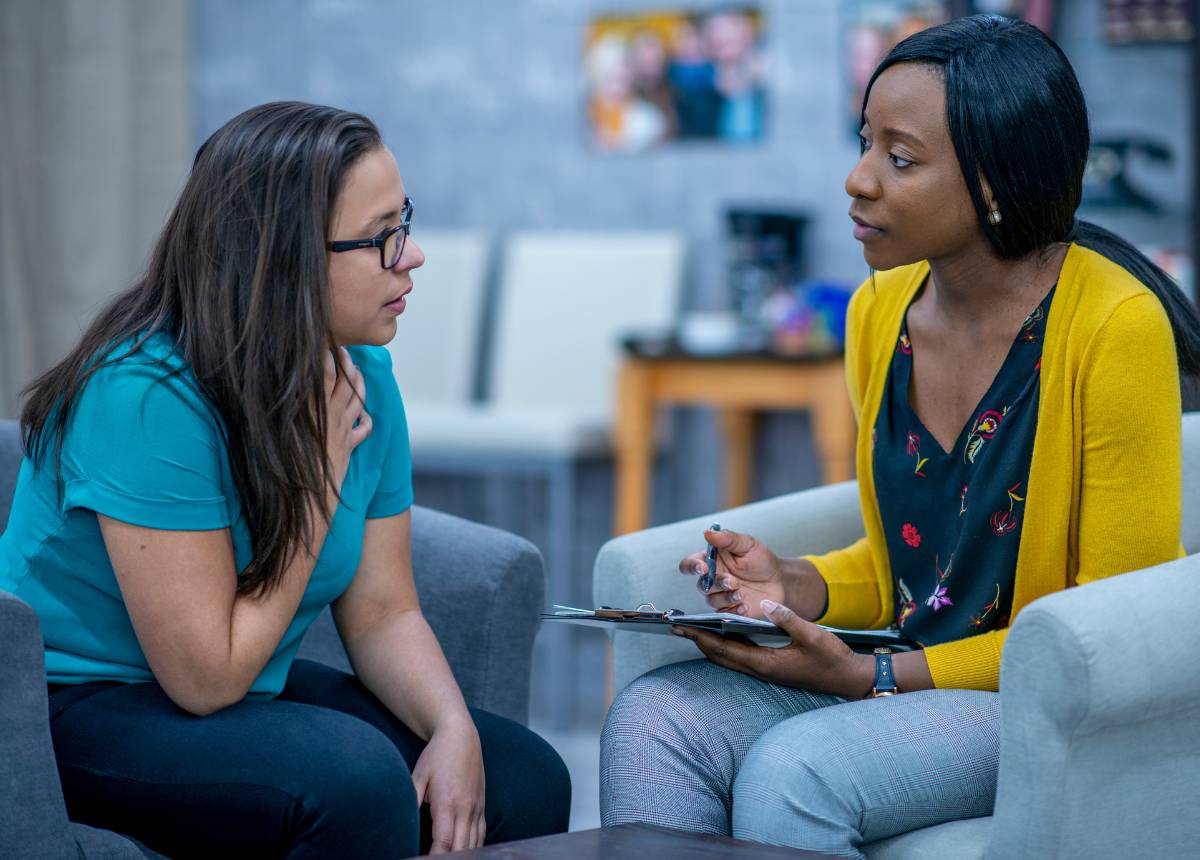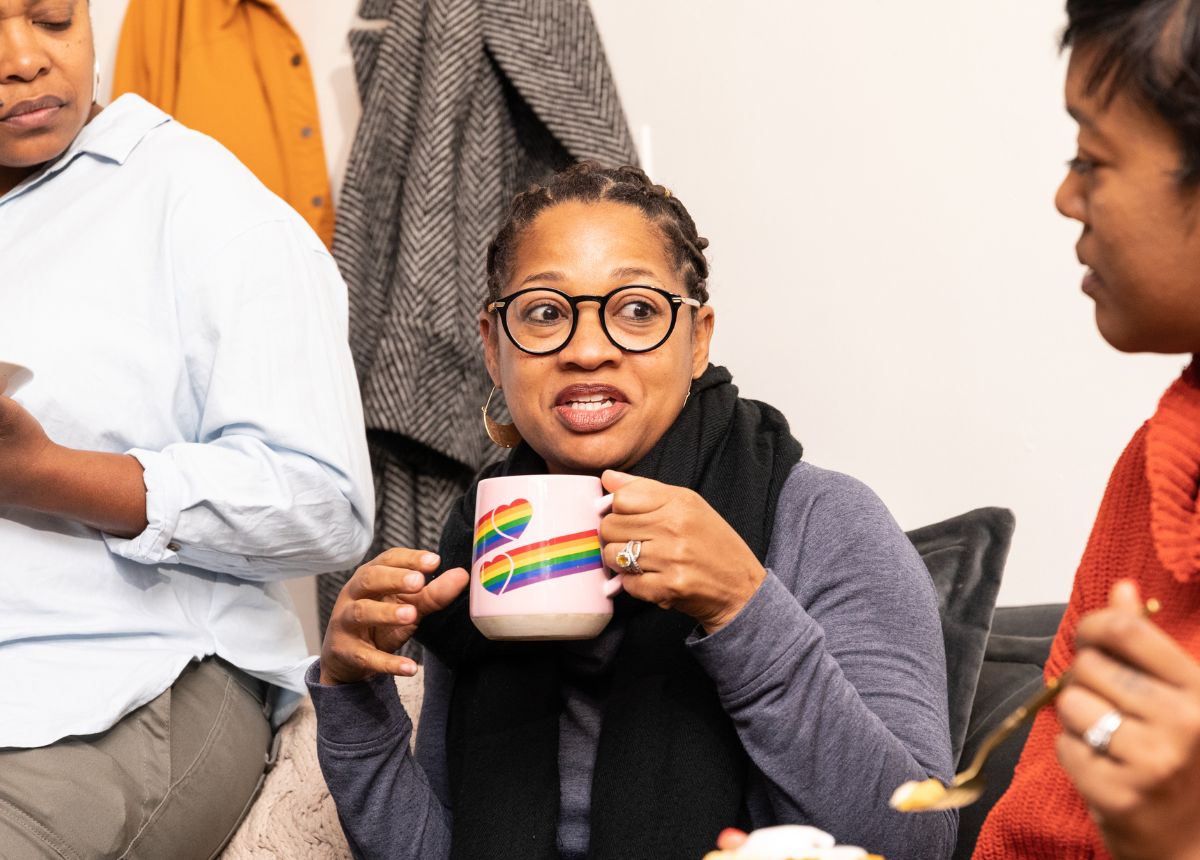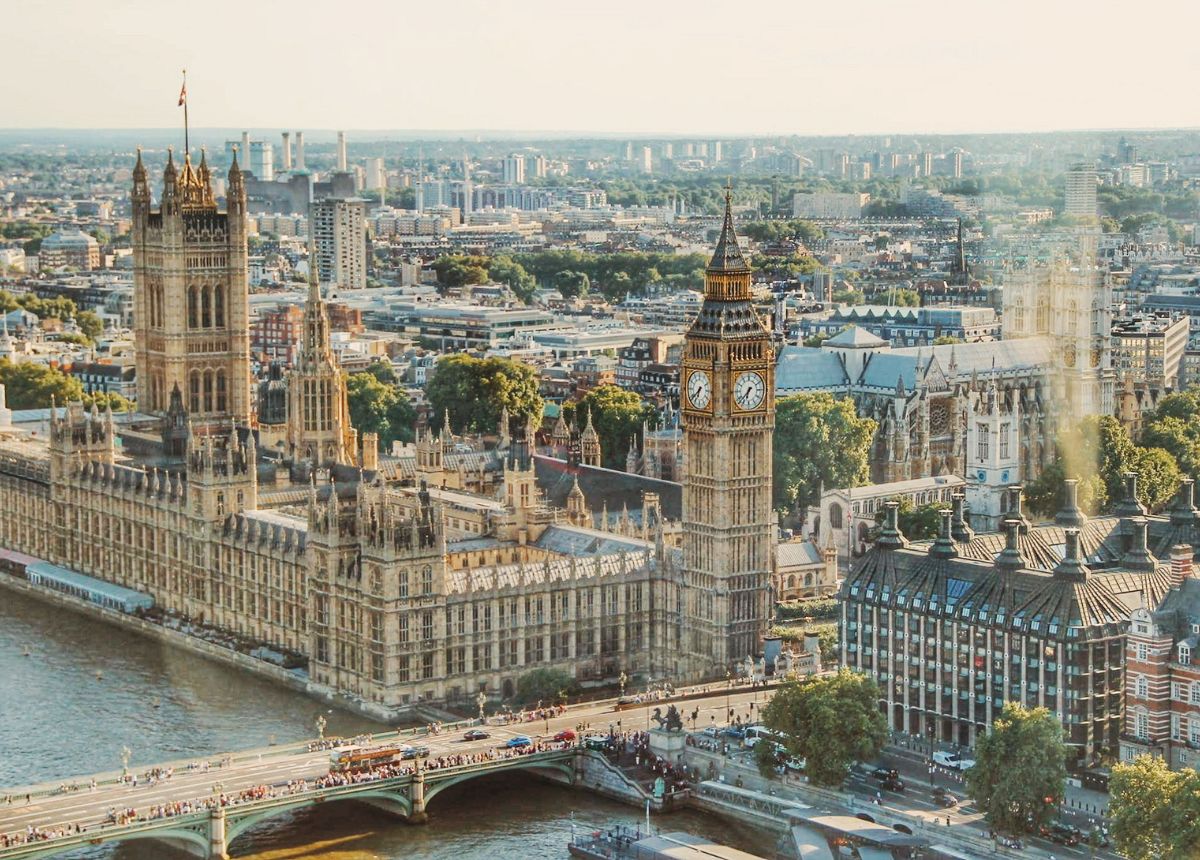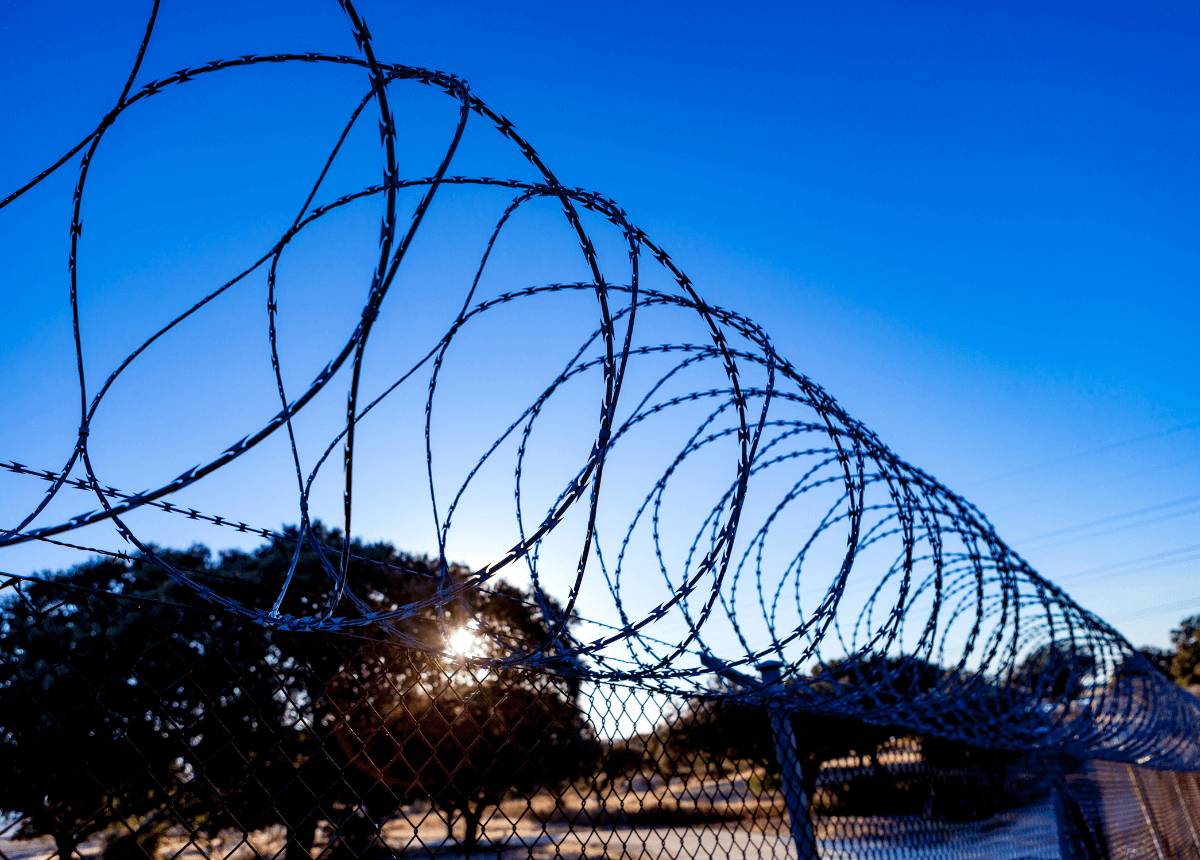Three ways you can make a difference this LGBT+ History Month
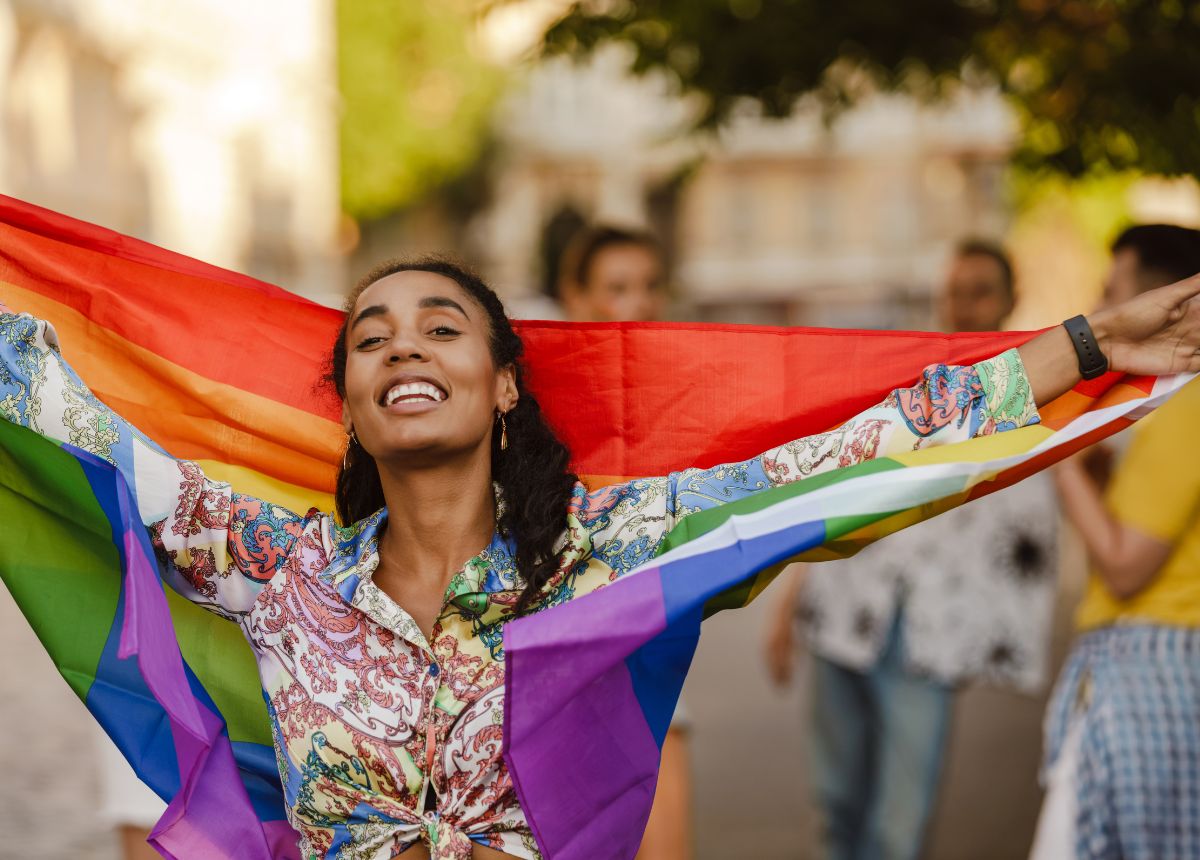
As we celebrate our history this month, we shouldn’t lose sight of the injustices still faced by some of our community in the UK today.
Right now LGBTQI+ people are being held in immigration detention, with no idea when they might be set free. We know that LGBTQI+ people face bullying, harassment and abuse in detention, but still this government won’t recognise that they should not be detained.
Instead, they plan to increase the use of detention – leading to even more LGBTQI+ people being locked away, and for longer periods.
Here are three ways you can help make sure LGBTQI+ people in detention aren’t forgotten this LGBT+ History Month:
1. Educate your friends about immigration detention. We have made a 1 minute video explaining the issue – would you share it with 3 friends who might not know about LGBTQI+ people in detention?
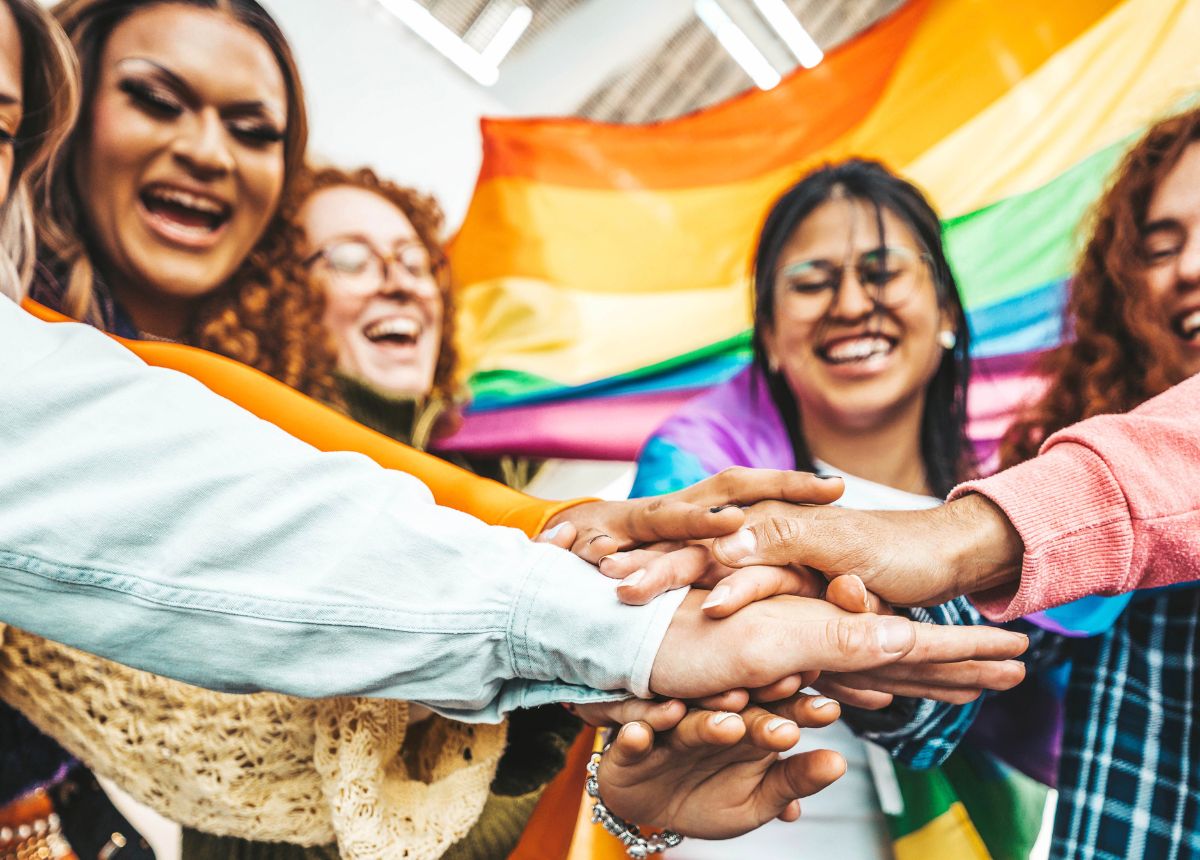
2. Get your community involved. Going to an LGBTQ community centre or venue this month? Why not take some No Pride In Detention flyers and ask them to display them – just let us know you want some and we’ll send them in the post.
3. Write to your local paper. Sending a short letter to the editor of your local paper is a great way to raise the profile of an issue. Our online form makes it really easy to do – you just need to edit the copy to show why you personally care about LGBTQI+ people in detention.
Whichever way you choose to help, thank you for your solidarity with LGBTQI+ people locked up in immigration detention.
LGBT+ History Month: Celebrating LGBTQI+ solidarity in our No Pride In Detention campaign
In our first blog for LGBT+ History Month we’re celebrating the queer solidarity shown by partners in our No Pride In Detention campaign.
No Pride In Detention calls for an end to the detention of LGBTQI+ people, who experience bullying, harassment and abuse while held in immigration detention. It’s an experience that has devastating consequences, but is so often overlooked or ignored – in part because detention only affects people subject to immigration control in the UK.
That’s why it’s so inspiring to see LGBTQI+ groups and organisations across the country join forces to say that we won’t stand for anyone in our community being locked up and subjected to bullying and abuse.
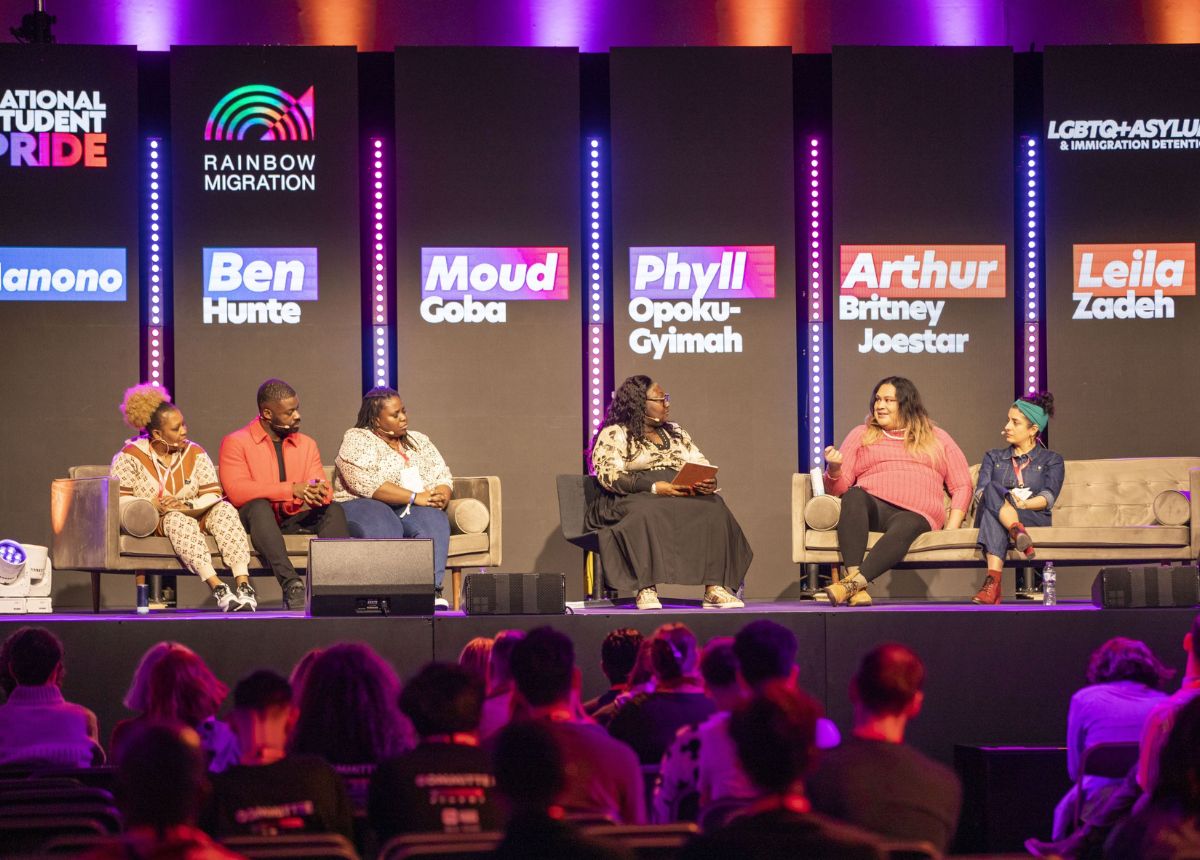
The organisations that make up the coalition are a diverse group – from big charities to radio stations and poetry groups. What brings us together is a sense of solidarity with LGBTQI+ refugee communities.
This LGBT+ History Month we want to showcase some of the amazing contributions these groups have made to the campaign.
Starting with Sahir House, who hosted us in Liverpool for two days while we worked with them and Many Hands One Heart on a film exploring the experiences of lesbian women in immigration detention.
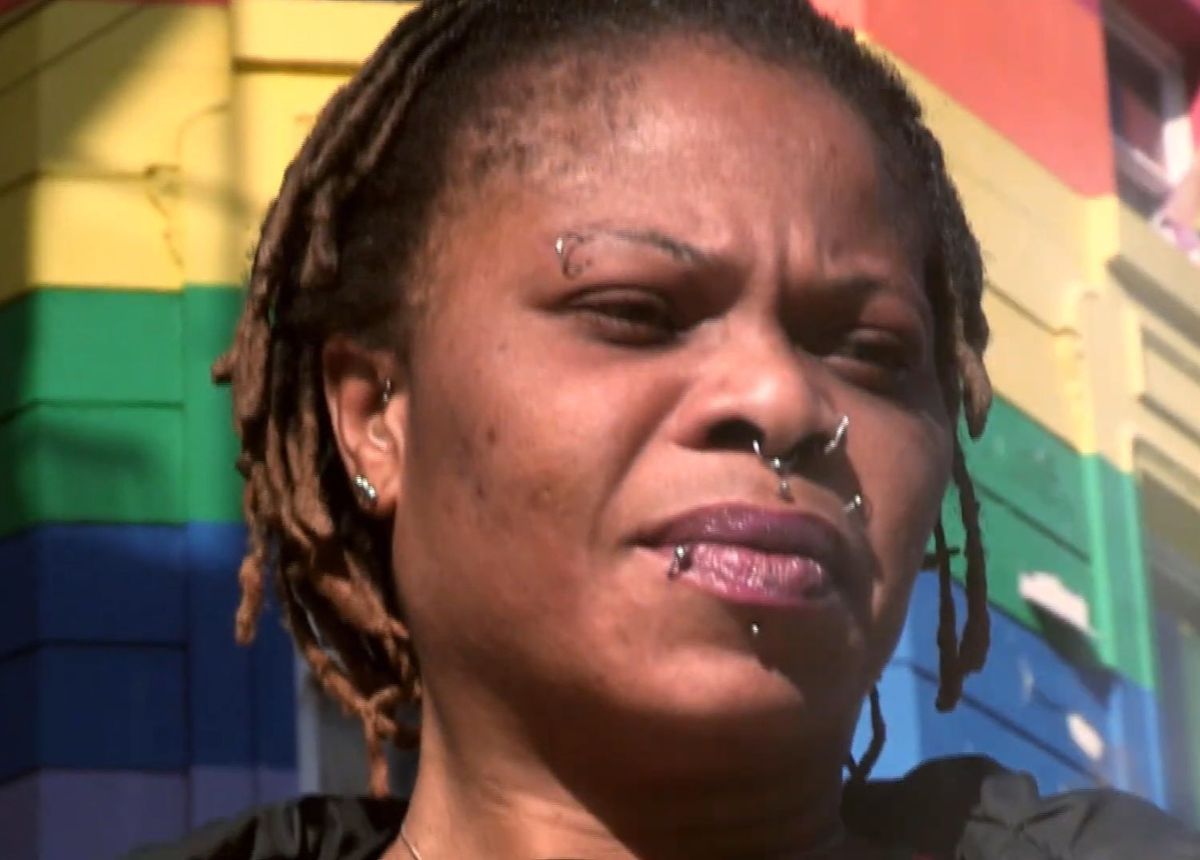
That film has enabled us to show LGBTQI+ audiences what detention is really like for those who are locked away. We have been honoured to screen it to the community in LGBTQI+ venues that are supporting the campaign, with events at the Ledward Centre in Brighton and London LGBTQ+ Community Centre.
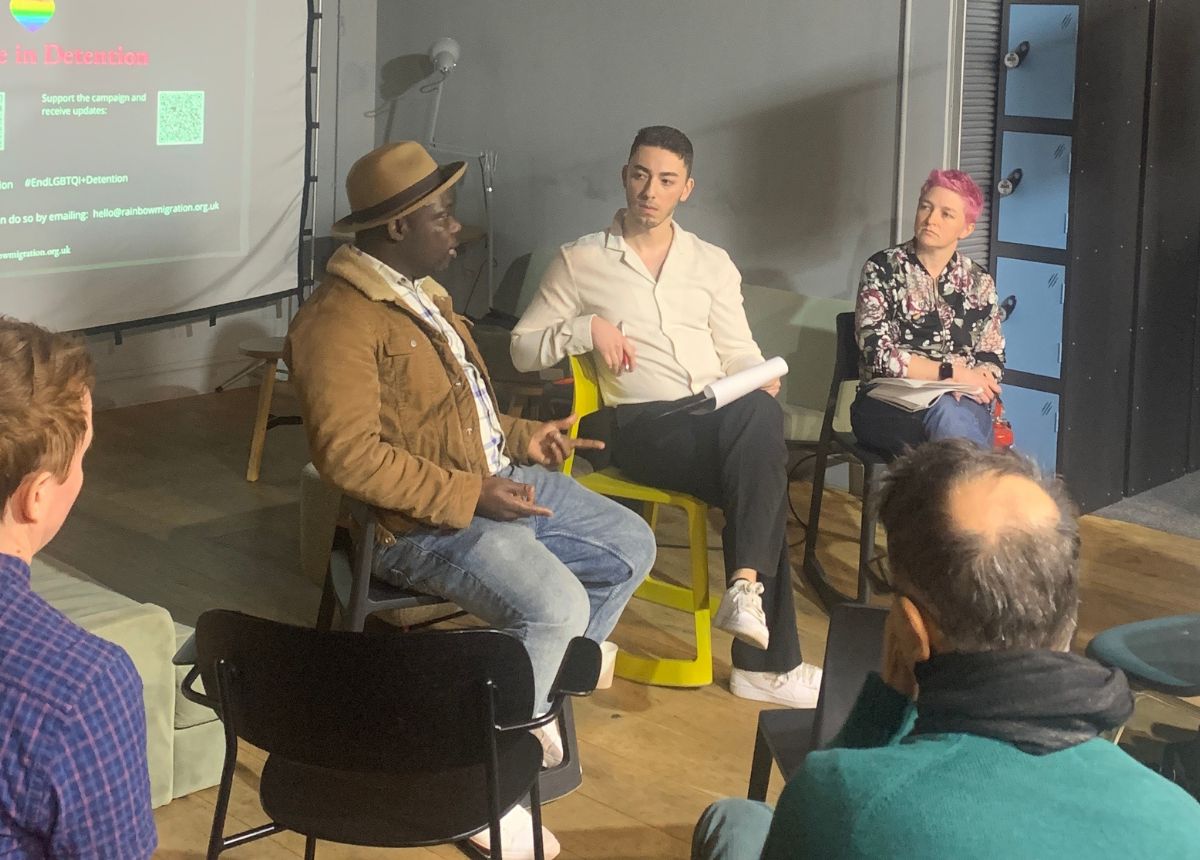
Other partners have joined in by taking the campaign to events – like Refugee Buddy Project campaigning at Hastings Pride and Trans Sober talking to the community at Brighton Trans Pride. And when it comes to influencing politicians, it is fantastic to have the backing of Stonewall, who included ending LGBTQI+ detention as one of their priorities for a new government in their Back On Track plan for LGBTQ+ equality in the UK.
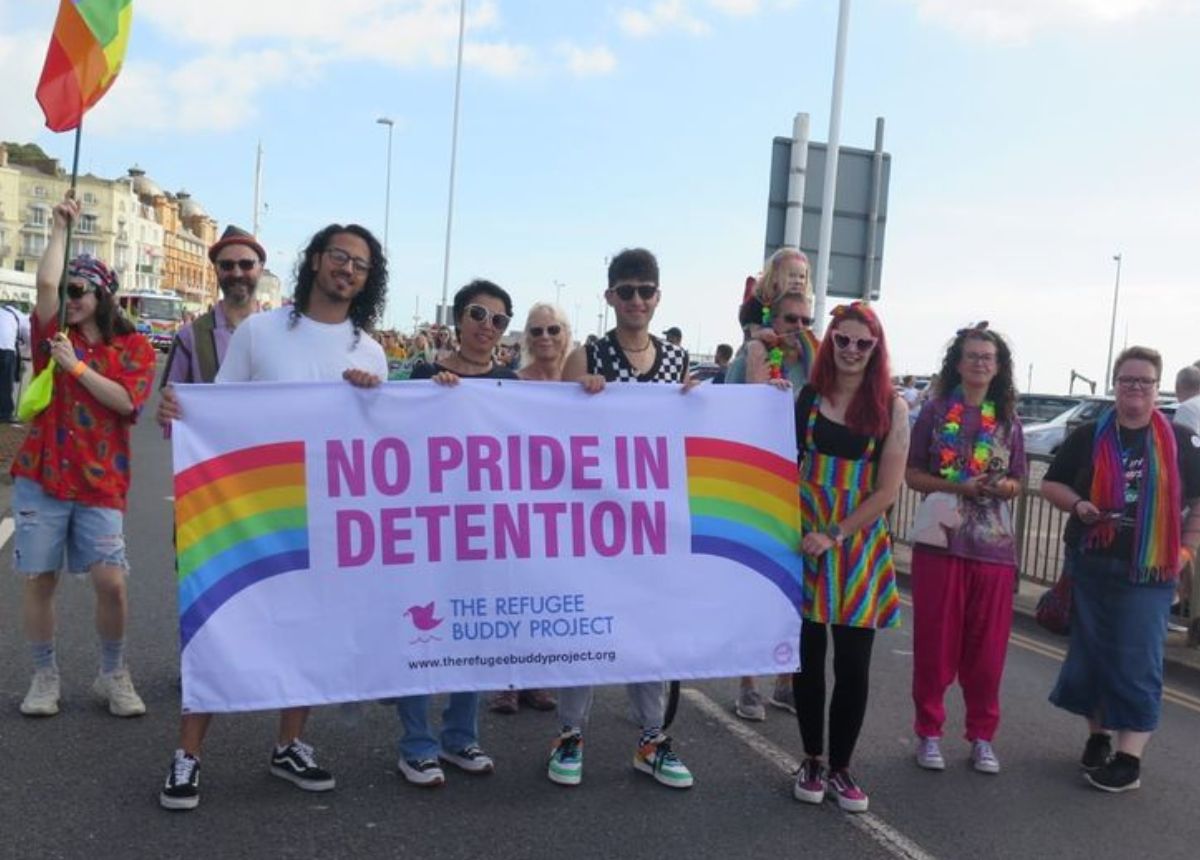
Spurred on by the injustices at Larne House Short Term Holding Facility near Belfast – where more than 5,000 people have been detained since it opened in 2011 – the campaign is also supported by 5 groups in Northern Ireland. Here NI, Rainbow Refugees NI, and End Deportations Belfast have been supporting tirelessly on social media to keep the issue in people’s minds.
If your group or organisation agrees that no LGBTQI+ person should be locked up indefinitely and subject to bullying and abuse, join us and become part of the movement to end LGBTQI+ detention. Check out the full list of organisations involved and sign you own group up today.
Together, we will win this!
Brook House Inquiry findings: A gay man faced verbal homophobic abuse and was outed by staff in detention
The first public inquiry into immigration detention in the UK, released today, found evidence that a gay man from Morocco had received verbal homophobic abuse from staff while held in immigration detention.
The man told the Inquiry that “he did not feel detention was an environment where it was safe to be open about his sexuality” and that “he believed staff were hostile towards gay people”. The report details an incident where a member of staff at the Brook House immigration removal centre told him that he needed to change his clothes “because [he] looked gay” in front of other people in detention, which effectively outed him and caused him to feel unsafe in detention. The report found that the remark was “probably made with the express intention of humiliating” him, and that the officer was likely to know “that his specific choice of words could have placed [the gay man] at risk of harm”.
“These findings show, once again, how dangerous immigration detention is for LGBTQI+ people”, said Leila Zadeh, Executive Director at Rainbow Migration, and continued “LGBTQI+ people face high levels of harassment, abuse and violence from others who are detained or, as this Inquiry shows, even staff”. On top of that, facing abuse in detention can retraumatise LGBTQI+ people, as many will have fled persecution and are already trying to cope with experiences of trauma from their past.
The case of mistreatment detailed above is one among a total of 19 incidents of mistreatment that were found by the Brook House inquiry in just a five-month period between April and August 2017. The report also catalogued a deeply troubling list of issues at the centre, including a dysfunctional safeguarding system, excessive and inappropriate use of force and the use of racist and abusive language towards people detained.
Under the recently passed Illegal Migration Act, this government plans to increase the use of detention, which will put LGBTQI+ people seeking protection in even more dangerous situations.
Recent UNHCR report findings suggest that supporting people who might otherwise be detained to navigate the asylum and immigration system in the community instead is better for their mental health and wellbeing, costs less than detaining them, and does not affect compliance with Home Office directives.
“This government urgently needs to end the use of immigration detention and instead invest in tried and tested community-based approaches that do not carry the same human cost”, said Leila Zadeh.
Further findings about the report have been reported by The Guardian and The Independent.
"It's like comparing night and day": community-based alternatives to detention
Imagine a world in which people trying to make the UK their home were met with a supportive environment, not a hostile one. A world where people without immigration status were supported to understand their options and make informed decisions about their next steps, rather than being detained and threatened with removal.
This approach is not only possible, but tried and tested within the UK. Following a recommendation from Stephen Shaw’s second report on immigration detention in 2018, the Home Office commissioned a series of pilot projects to test community-based “alternatives to detention”, both of which have now concluded and been subject to an independent evaluation.
The results of both initiatives are clear. Supporting people who might otherwise be detained to navigate the asylum and immigration system in the community instead:
- is better for their mental health and wellbeing
- costs less than detaining them, and
- does not affect compliance with Home Office directives.
We must remember that detaining people going through the asylum and immigration system is a choice our government makes. It’s a choice that destroys lives, tears communities apart and has devastating consequences for those who are locked up with no idea when they might be set free. It puts LGBTQI+ people in a dangerous situation where they face bullying, harassment and abuse.
Nobody benefits from detention, except the private contractors who are paid millions of pounds a year to run the UK’s detention centres. But we could all benefit from an approach that sees people supported in our communities and empowered to make decisions that are right for them. For LGBTQI+ people who have fled persecution and could otherwise be detained here, it would mean having the chance to live openly and with dignity while they claim asylum in the UK.
With an alternative on the table that is compassionate, humane and cost-effective we cannot let this government continue its plans to re-open Campsfield and Haslar detention centres and tender for three new centres as well.
Help spread the word about compassionate alternatives to detention by emailing your MP.
Read on to learn more about the two pilot projects.
King’s Arms Project – Refugee and Migrant Advice Service
Last month UNHCR published the evaluation of a pilot project delivered by the King’s Arms Project (KAP) in Bedford. Between 2020 and 2022, 84 people without immigration status who were liable to detention were supported in the community through KAP’s Refugee and Migrant Advice Service (RMAS).
People taking part in the pilot received free, high-quality legal counselling and one-to-one support from a caseworker. That one-to-one support was flexible and tailored to individual needs – for example help with accessing healthcare, setting up bank accounts, social inclusion or accessing training/volunteer opportunities.
By the end of the pilot, 80% of people had been offered viable options to regularise their immigration status. They experienced better self-esteem and wellbeing, a better understanding of their legal options, and increased confidence and ability to access entitlements. As a result they were able to make informed decisions about their situation.
NatCen, who evaluated the project, estimated the pilot to be two-thirds cheaper than it would have been to detain the individuals supported.
“It’s like comparing day and night. King’s Arms Project is like the day where the sun is out and my life before was like in the night, without stars.”
Action Foundation – Action Access
RMAS was preceded by Action Access, delivered by the Action Foundation in Newcastle from 2019 – 2021. That project supported women seeking asylum in the UK, most of whom were detained in Yarl’s Wood prior to joining the pilot. As with RMAS, the women were given legal counselling and one-to-one support, however the Action Access pilot also provided them with shared accommodation and subsistence payments.
Unsurprisingly, the women moved from detention to this project experienced immediate improvements to their health and wellbeing. They experienced greater stability while on the pilot, and were better able to understand their options and make informed decisions about their asylum cases.
Despite being hampered by the coronavirus pandemic and having to run below capacity, Action Access was cheaper per participant per night than detention. In the evaluation NatCen estimated that potential savings from extending the pilot (e.g. running it at capacity and entering into longer leases to save on rents) could see the cost come down to less than half the cost of detaining someone.
“In detention, you don’t have this kind of positive atmosphere. You just want to cry. You just want to stop eating. You just want to kill yourself. This is because you are so in trouble there, right. Then, when you come out, it’s like everything is going to be nice again… the atmosphere is very different, and I think you recover yourself.”
"Rainbow Migration has a lot to celebrate!"
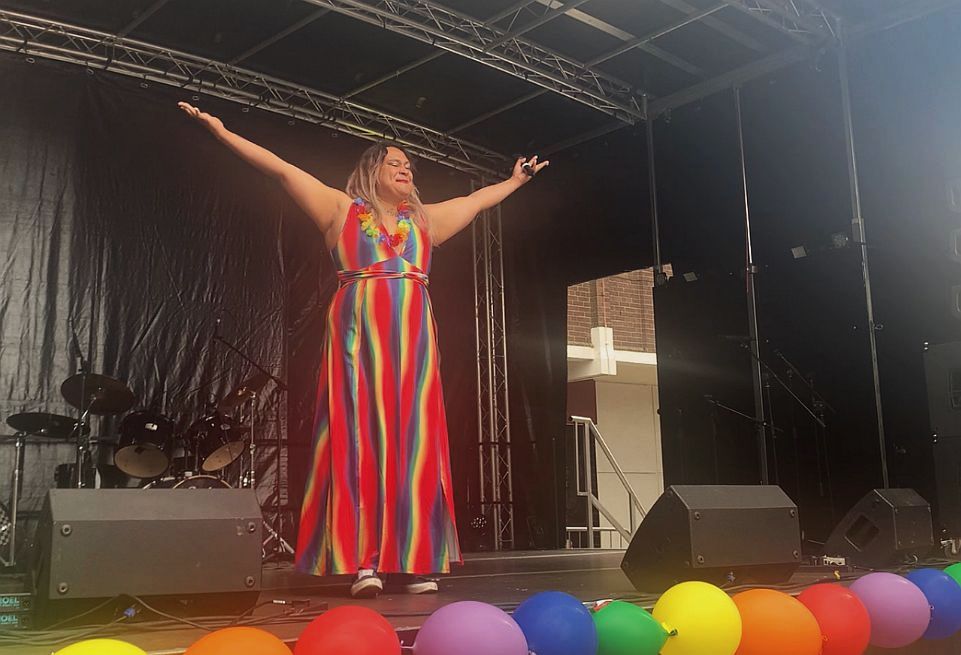
To celebrate our 30th anniversary, we spoke to many of the people who are an important part of our history. Below, Arthur Britney, a member of our campaigns advisory group, told us what Rainbow Migration means to them.
I first came across Rainbow Migration soon after I arrived in the UK in 2017. At the time I was identifying as a gay man. One of the very first things I did was research support for LGBTQI+ people seeking asylum. I found the Rainbow Migration website, which was so helpful and informative, and contacted them about their group meetings. Knowing an organisation like this existed, with in-person support, made me feel safer.
I went to a meeting in Birmingham and met a support worker from Rainbow Migration. Even though my English was terrible, I was treated with so much kindness. The support worker was really helpful; she explained what I needed to do and helped me feel less panicked. When you start the asylum process, you’re not an expert, you don’t know anything. you don’t understand what will happen. I was very scared. The support worker really calmed me down and reassured me. It was exactly what I needed. I had just escaped my country. The support worker explained the asylum process to me and advised me to contact the Home Office.
Thanks to the Rainbow Migration support worker, I contacted the Home Office, who moved me to Liverpool, and I began to feel a bit happier. Having faced persecution and discrimination in my country of origin, I was able to start exploring my gender identity in the UK. I felt free in Liverpool; I was able to wear what I wanted and to really be myself. Finally, I felt safe to come out as non-binary. I got granted refugee status in 2020. I was the first person to be granted asylum in the UK on the basis of being non-binary.
“Rainbow Migration has a lot to celebrate, and I am proud to be part of that. It Is so important to so many people and should be proud of all it does.”
In 2022 I began working with Rainbow Migration as a volunteer for their No Pride In Detention campaign. Kiki, one of the trustees, asked me if I wanted to be part of the campaigns advisory group; I was so grateful for the opportunity. As part of the group, I’ve contributed to the production of the campaign film, spoken at National Student Pride, recorded a podcast, and helped out at events. It has given me the chance to learn professional skills, to have a say about issues important to me, to express myself, and meet lots of new people. Being part of the campaign has also led to new opportunities for collaboration and has really helped me grow as a person. Being part of No Pride In Detention has had such a positive impact on my development.
Rainbow Migration has a lot to celebrate, and I am proud to be part of that. We are on the right side of history. While rights are consistently under threat, in the UK, and the rest of the world, we will always fight to protect LGBTQI+ people who are seeking safety. It’s scary to go through uncertain times, but organisations like Rainbow Migration make such a difference to so many people’s lives. In the future, I really hope the organisation can keep expanding its services for trans people in the asylum system. Without that support, many would be invisible, and even more marginalised and isolated than they already are. Rainbow Migration Is so important to so many people and should be proud of all it does.
Tell your MP about alternatives to detention
We all know that immigration detention is unjust and inhumane. Now the UN Refugee Agency has published evidence showing that a new compassionate approach could be a reality in the UK.
We need MPs to see this report.
The report covers two UK pilot projects where people were supported with their asylum or immigration cases in the community rather than being detained.
Compared to locking people up in detention, providing legal counselling and personalised support in the community was more humane and resulted in significant improvements in mental health and wellbeing.
At the same time, there was no evidence of reduced compliance with the Home Office and the projects were both cheaper and offered better value for money than detention. So why is this government doubling down and planning to open three new detention centres?
The harm that detention causes is unjustifiable. For LGBTQI+ people, being cut off from communities of support and subjected to discrimination and abuse inside can make it even worse.
Thank you for helping us spread the word that there is another way.
MPs raise concerns about this government's plans to detain and send LGBTQI+ people to Rwanda
A new report on equality and the UK asylum process by the Women and Equalities Committee highlights that new legislation could put LGBTQI+ people seeking asylum at greater risk of harm.
Committee Chair, Caroline Nokes MP said: “We were disturbed by the Home Office’s inadequate management of risks of harm to asylum seekers with protected characteristics, including women, LGBT people, children and disabled people. Alarmingly, these risks will increase under the Government’s recent and planned reforms.”
Immigration detention and Rwanda
MPs are “deeply concerned that the current and planned reforms risk turning back the clock on policies intended to ensure detention is used only as a last resort, and to reduce the risks of harm to vulnerable people.” If the Refugee Ban Bill is passed into law, more people could be detained for longer periods of time. This would include LGBTQI+ people, who in detention face bullying, harassment and abuse, with serious consequences for their mental health.
The report recommends this government set out how it plans to mitigate the risks of harm to LGBTQI+ people in detention, and to collect and monitor data on where LGBTQI+ people are detained and for how long. At the moment, the government does not keep track of LGBTQI+ people in detention, which means that they cannot monitor and reduce the harm of detention to LGBTQI+ people.
MPs also expressed their worries about this government’s plans to send LGBTQI+ people to Rwanda and urged it to “set out how it intends to monitor and ensure those removed to Rwanda do not suffer harm or experience discrimination in that country”.
At Rainbow Migration, we have called out Rwanda as a country where LGBTQI+ people are subjected to discrimination, violence and abuse. The situation for LGBTQI+ people in Rwanda is so poor that it LGBTQI+ Rwandans have sought asylum in the UK.
“This report, for which Rainbow Migration gave oral and written evidence, is sending a very clear message to this government. The inhumane policies towards people seeking asylum in the UK have to stop immediately. This government’s legislation will put LGBTQI+ people seeking protection in dangerous situations, by detaining them in greater numbers and sending them to countries where they could face discrimination and violence”, said Leila Zadeh, Executive Director at Rainbow Migration, “instead, this government needs to focus on creating a compassionate and caring asylum system that treats people with kindness”.
Dangerous accommodation arrangements for LGBTQI+ people
The report also highlights that new contingency accommodation, such as military barracks and barges, being used by this government to house people wanting to rebuild their lives in the UK, is “unacceptable from both safeguarding and equalities perspective”, as it puts LGBTQI+ people at heightened risk of hate crime.
Leila Zadeh gave examples of the harassment and abuse experienced by LGBTQI+ people in government-provided accommodation. She explained that in the case of one man in military barracks, he was “ harassed by the others there, and there was no private space—the showers were communal, and they were sleeping in dorms, effectively. We worked very hard with other partner NGOs to try to get this person out but, to our knowledge, vulnerable people are being placed in accommodation like barracks and other forms of contingency accommodation which are completely unsuitable.
It’s not too late for the Prime Minister to stop this. Add your name to show the Refugee Ban Bill does not represent us.
Understanding immigration detention - part 2
This is the second of a two-part blog answering some of the most frequently asked questions we get on social media about our No Pride in Detention campaign.
How many people in immigration detention are LGBTQI+?
We cannot be sure of how many LGBTQI+ people are in detention, because this government does not collect or monitor the data.
The Home Affairs Select Committee has criticised the government for not collecting data on this, as it makes it impossible to accurately identify how many LGBTQI+ people are being detained.
What we do know is that even one LGBTQI+ person being locked up for months on end and subjected to bullying, is one too many.
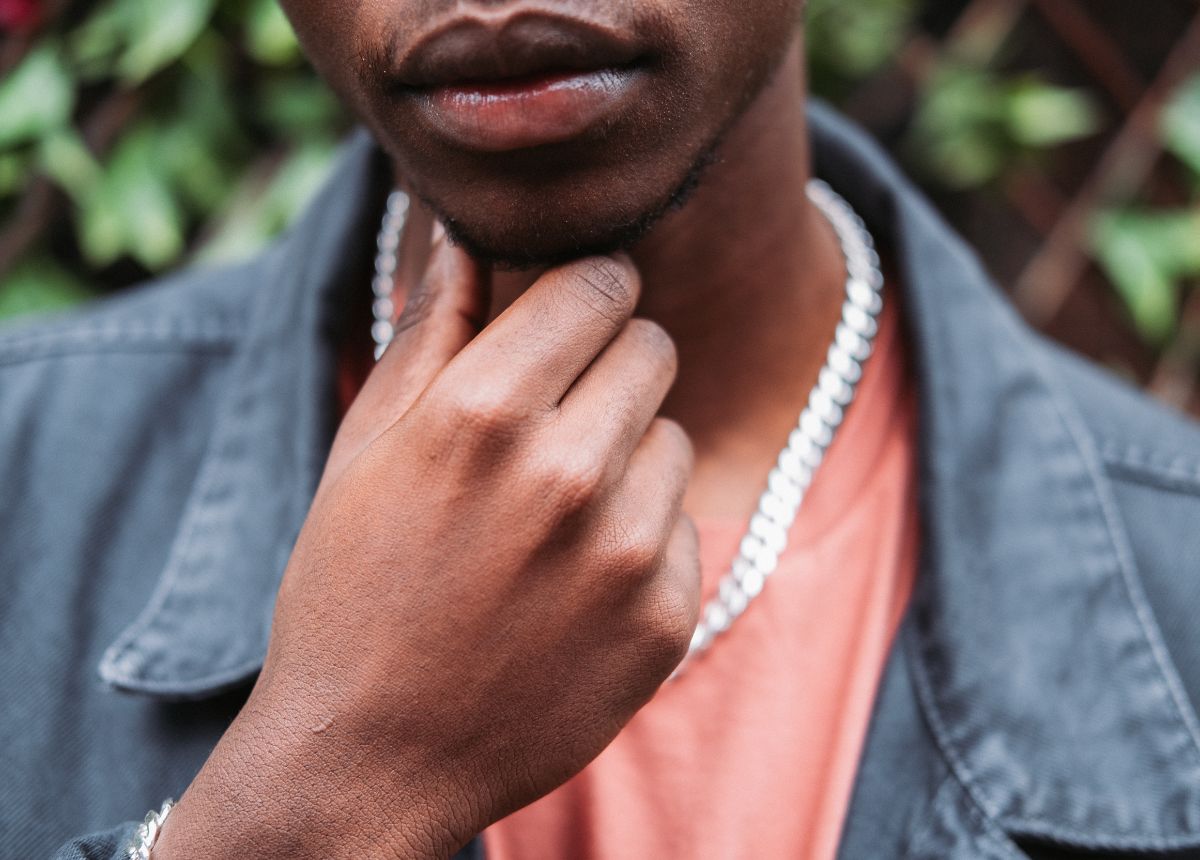
Is there anything official, or any studies, which prove that LGBTQI+ people face violence in detention centres?
Together with Stonewall, we published No Safe Refuge in 2016. The report highlighted the systemic discrimination, abuse and harassment that LGBTQI+ people seeking asylum faced both by staff and other people detained. The findings were stark – they faced physical and verbal abuse, deteriorating mental health, inadequate medical care and discriminatory attitudes from staff.
Earlier this year, the University of Brighton published a pilot study that found that UK detention centres continue to be very dangerous places for LGBTQI+ people, with participants reporting attacks from other detained people and inaction from staff in the face of escalating abuse.
On top of the UK evidence, similar conclusions have been reached internationally. The International Detention Coalition published a report in June 2016 reiterating that marginalised individuals should never be placed in immigration detention. Their report found that “LGBTQI+ persons face heightened levels of harassment, discrimination, psychological abuse, physical and sexual violence by detention staff as well as other detainees. They are frequently segregated in conditions falling below those of the general detainee population and well-established international standards, or are subjected to policies of solitary confinement, which have been shown to have severe mental and physical health consequences. Almost universally, LGBTQI+ people in detention are in situations of extreme vulnerability”.
And in its detention guidelines, the UNHCR (the UN agency responsible for monitoring and protecting refugees) warns that measures must be taken to avoid exposing LGBTQI+ people to the risk of violence or abuse in detention. Where their safety cannot be ensured, alternatives to detention must be considered. The guidelines suggest that LGBTQI+ people should never be kept in isolation or confinement, that all detention staff should be aware and trained in issues relating to LGBTQI+ people, and that LGBTQI+ people should have access to appropriate healthcare and counselling.
What would a victory look like for you and your campaign?
A win would mean lesbian, gay, bisexual and queer people are included in the Adults at Risk Policy. We also need to see improvements to that policy, to ensure that those at risk of harm are correctly identified and excluded from detention.
Ending the detention of LGBTQI+ people who are fleeing persecution in their home countries would help keep them safer in the UK. No-one should be locked away as punishment for seeking safety. Supporting people in the community would give LGBTQI+ people the chance to live with dignity and to be open about who they are while they pursue permission to stay in the UK. It would give them a better chance to gather evidence and find appropriate legal representation for their claims.
We also want the government to set a time limit of 28 days on all detention, to limit the harms that it is causing to everyone affected – not just the LGBTQI+ community.
These wins would be the start of a much-needed overhaul of the UK’s asylum and detention system. We hope it would lead on to meaningful investment in alternatives to detention, declining numbers being detained, and ultimately the end of the use of immigration detention in the UK.
Was this blog helpful? If so, you can read the first part of the blog. And if you want to take action, you can ask your MP to oppose LGBTQI+ detention.
Understanding immigration detention
Immigration detention is a complex issue that does not always get the attention that a scandal on this scale deserves. As a result, many people are unaware of how it operates and who is affected. We often get asked what immigration detention is, why it is so dangerous for LGBTQI+ people, and how people can help. This is the first of a two-part blog answering some of the most frequently asked questions we get on social media about our No Pride in Detention campaign.
How many detention centres are there, and where are they?
There are currently seven immigration detention centres (officially known as immigration removal centres) in the UK:
-
- Brook House, Gatwick, London
- Colnbrook, Middlesex
- Derwentside, County Durham
- Dungavel House, South Lanarkshire, Scotland
- Harmondsworth, Middlesex
- Tinsley House, Gatwick, London
- Yarl’s Wood, Bedfordshire
But in 2022, this government announced plans to reopen two more centres: in Campsfield, in Oxfordshire, and Haslar in Gosport, Hampshire. This will allow the government to hold up to an extra thousand people in the immigration detention estate.
The government also operates a number of “short term holding facilities”. These are places to detain those who have just arrived in the UK for shorter periods of time while the Home Office assesses their case.
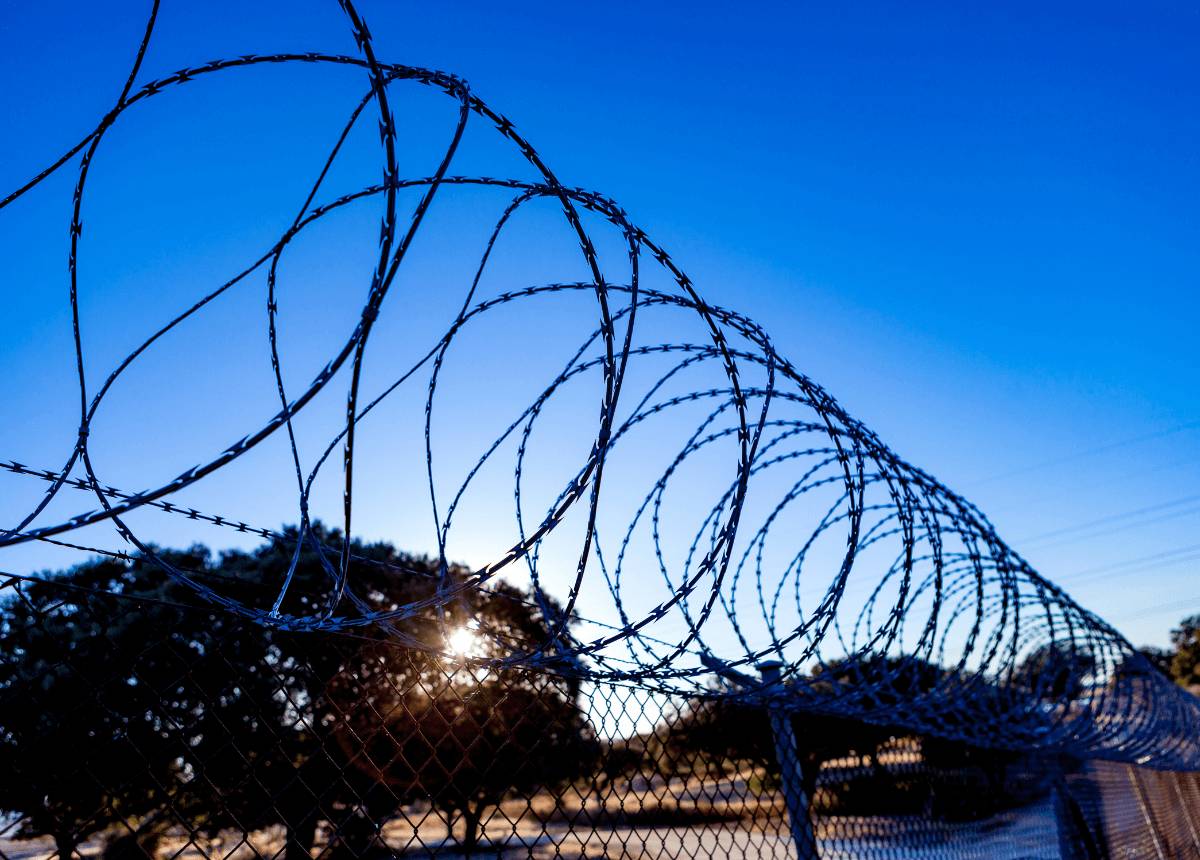
Would it be discriminatory to only keep LGBTQI+ people out of detention?
Like many other organisations and people in society, we think that detention is unjust and damaging to everyone. But evidence shows that LGBTQI+ people (alongside other groups like pregnant women and survivors of torture) are at even greater risk of harm when detained.
We want to see an end to detention in the UK, but while it remains a part of the UK immigration system, we want anyone at additional risk of harm to be kept out of it. The government already has a list of characteristics or experiences that may indicate a person is at greater risk of harm if detained, and that list already includes trans and intersex people. We want the whole LGBTQI+ community to be included in recognition of the risks they face.
There is evidence that LGBTQI+ people are particularly unsafe in detention and should not be detained. They experience bullying, harassment and abuse. This can be from members of staff or from other people who have been detained, who may hold the very same homophobic and transphobic attitudes that LGBTQI+ people seeking asylum are trying to flee.
The situation is urgent. If this government’s new Refugee Ban Bill becomes law, there will be a drastic increase in the number of people detained, as a punishment for seeking asylum. To protect the wellbeing of LGBTQI+ people who are seeking safety in the UK, it is vital to end LGBTQI+ detention.
What are the specific dangers that LGBTQI+ people face within detention?
In immigration detention, LGBTQI+ people face high levels of harassment, abuse and violence from others who are detained, or even staff, who ought to be protecting them. Staff in detention centres are supposed to keep people who are detained safe, yet many lack knowledge of LGBTQI+ specific needs, and might even have discriminatory views of their own.
In a recent pilot study, LGBTQI+ people in detention spoke about receiving verbal homophobic abuse from staff, and about staff failing to stop physical attacks from others in detention. Others who were interviewed did not report the LGBTQI-phobic abuse they had experienced as they did not feel they would be believed or supported by staff.
Facing abuse in detention can retraumatise LGBTQI+ people. In our No Safe Refuge study, Gasha from Cameroon said; “I got flashbacks of everything I’ve been through in Africa. I’ve been free for two or three years and then here I am back in a cell”.
If you don’t want immigration detention for LGBTQI+ people, what do you think about detention in general? Is there another or better way to deal with asylum claims, or people who might need to be removed?
Immigration detention is inhumane and expensive, causing long-term damage to the lives of those detained and tearing families apart. Although detention should normally only be used when someone is about to be removed from the UK, in the year ending September 2022, of the people leaving detention, 83% were released back into the community. Supporting people to get help with their immigration status while living in the community can help them to resolve their cases without the human and economic cost that detention brings.
At the moment, community-based case management approaches are being tested across Europe. The first project to report back in the UK found that providing vulnerable women who were seeking asylum with shared accommodation, intensive support and legal advice in the community:
-
- was significantly better for their health and wellbeing
- could cost half as much as keeping someone in detention, and
- did not decrease compliance with the immigration system
Although this government has officially accepted the recommendations from the evaluation of this pilot, instead of following the evidence they are increasing the use of detention.
With an expanding detention estate and new legislation that significantly extends the government’s powers to detain, we need to protect those most at risk more than ever.
If you want to take action, you can ask your MP to oppose LGBTQI+ detention. Or you can read the second part of the blog.
You are invited to our film screening in London
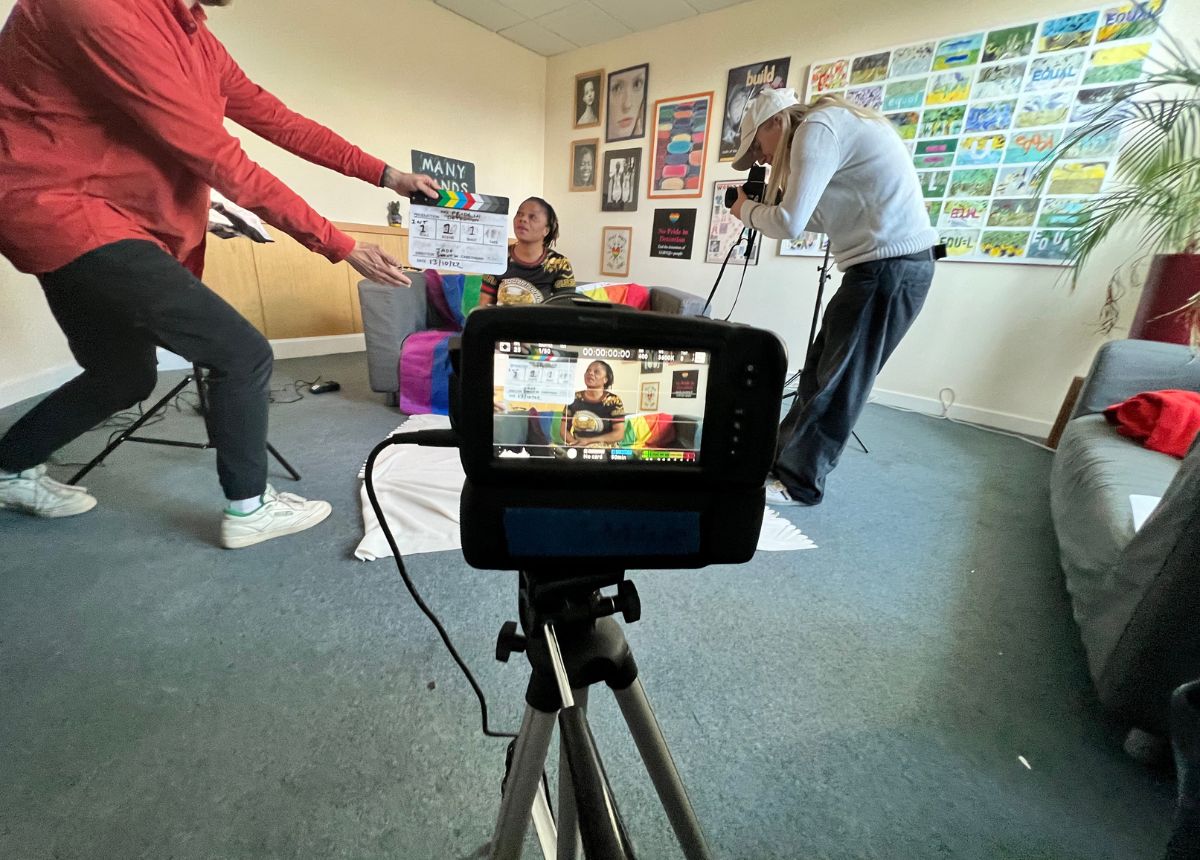
LGBTQI+ people come to the UK fleeing persecution. But instead of finding safety here, some are locked up in detention centres where they face LGBTQI-phobic bullying, harassment and abuse.
Join us for a short film screening, talk and Q&A on LGBTQI+ experiences of immigration detention. Hear from people with lived experience of detention and discuss how we can resist this unjust and inhumane practice in the UK.
There is #NoPrideInDetention.
When: Friday 10 March, 6-7:30pm
Where: London LGBTQ+ Community Centre

